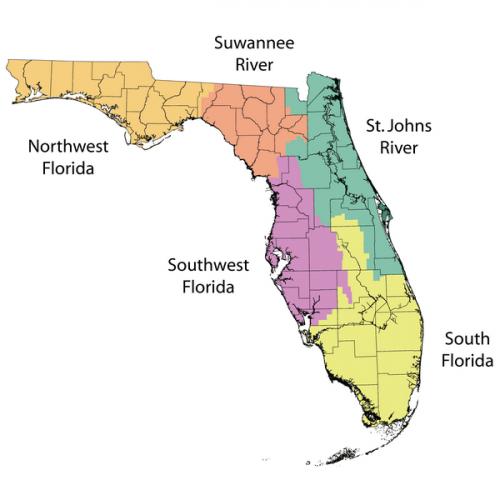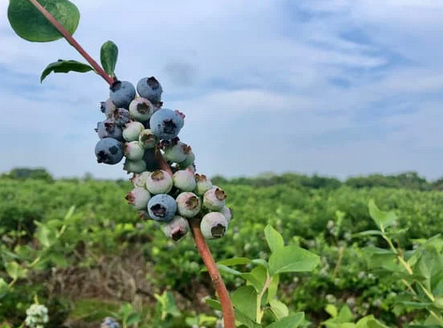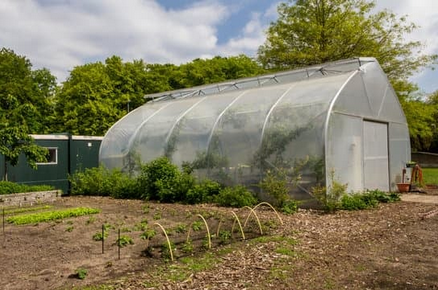With more than 9.7 million acres of farmland in the state, agriculture is a big deal in Florida. And because agriculture is inextricably linked with Florida’s natural resources, state representatives often put forth bills that aim to balance production with environmental conservation – a task that isn’t always easy.
Here’s what this year’s agricultural-focused legislation is all about:
Soil and Water Conservation Districts
Florida is home to more than 7,800 freshwater lakes, 1,700 streams and rivers, 700 springs, 11 million acres of wetlands, and five major aquifer systems. Each of these sources supplies freshwater to Florida’s agricultural sector, more than 21 million residents, and our natural environment.
Florida’s Soil and Water Conservation Districts were established in 1937 “to provide assistance, guidance, and education to landowners, land occupiers, the agricultural industry, and the general public in implementing land and water resource protection practices,” according to the state statutes.

The legislation was passed as part of a nationwide trend following the Dust Bowl environmental crisis. Currently, the U.S. has more than 3,000 soil and water conservation districts, and Florida is home to 58.
Additionally, in 1972, Florida lawmakers established the Florida Water Resources Act, which called for the establishment of five water management districts around the state that would be responsible for flood control and managing the state’s water resources.
Two similar bills, SB 1772, introduced by Florida State Sen. Jay Collins (R), and HB 1075, introduced by the Local Administration, Federal Affairs & Special Districts Subcommittee, would dissolve the state’s 58 county-based soil and water conservation districts and transfer their assets into seven newly created districts.
The legislation would also change the district membership from locally elected members to appointees of the state Commissioner of Agriculture.
On its website, advocacy environmental group 1000 Friends of Florida critiqued the bill.
“We are concerned that the program is being shifted from an electoral process to appointed, which reduces citizen engagement in these local programs.”
The bill also calls for the establishment of a seven-member Soil and Water Conservation Council to help guide the Florida Department of Agriculture and Consumer Services (FDACS) in developing agricultural best management practices.
The bill states that the establishment of the council “is declared to be in the best interest of the state that public agencies responsible for and involved in the development and implementation of best management practices, agricultural water quality, and water supply policy and planning work together to reduce duplication of effort, foster maximum efficient use of existing resources, and advise and assist the agencies involved.”
UPDATE: SB 1772 died in the Community Affairs Committee; HB 1075 died in the Infrastructure Strategies Committee.
Cultivated Meat
Cultivated meat, or meat grown by culturing animal cells in a lab setting, is a relatively new scientific pursuit that could prevent the need for the harvest or slaughter of animals in meat production. The first cultivated meat burger was unveiled on live television by Dutch scientist Mark Post in 2013. According to the Good Food Institute, an advocacy group promoting alternative protein production, the cultivated meat industry today is backed by $2.6 billion in investments and is made up of more than 150 companies on six continents.
Taken as a sample of cells from chickens, cows, pigs, or other popular meat sources, cuts of chicken breasts, steak, and pork can be produced in a lab without raising or killing animals. Although approved by the U.S. Food and Drug Administration in 2023, cultivated meat faces political opposition in the Florida 2024 Legislative Session.
SB 586, introduced by Florida state Sen. Clay Yarborough (R), and the related bills HB 435, introduced by Florida State Rep. Tyler Sirois (R); SB 1084, introduced by Florida state Sen. Jay Collins (R); and SB 1071 introduced by the Agriculture & Natural Resources Appropriations Subcommittee, propose “prohibiting the manufacture, sale, holding or offering for sale, or distribution of cultivated meat in this state,” according to the bill’s summary.
Proponents of cultivated meat say it can solve many of the ethical and environmental problems associated with traditional meat production. No animals are killed during production, and valuable land and water resources are saved.
The high cost of production, however, is one barrier that stands in the way of cultivated meat becoming commonplace, alongside high energy consumption and carbon emissions associated with ramping up production to a larger scale. Public uncertainty is another issue, with many people skeptical about eating meat grown in a lab.
The legislation would define the term “cultivated meat” and hit all cultivated meat products with a stop-sale order. Upon the bill’s passage, violators would be charged with a second-degree misdemeanor, punishable by an up to $500 fine and 60 days in prison.
UPDATE: SB 586 died in the Agriculture committee; HB 435 died in the Agriculture and Natural Resources Appropriations Subcommittee. HB 1071 was laid on the table, meaning it was set aside and died at the end of the session – however, its companion bill SB 1084 was enrolled, which means it was approved by the House and Senate and sent to Governor DeSantis for approval.
Agritourism
Agritourism combines the production of food and other agricultural products with the tourism industry. From 2007 to 2012, the U.S. Department of Agriculture Census of Agricultural data shows that the number of Florida farms offering recreational experiences more than doubled from 281 to 724 in 2012. Visitors can visit farms and production facilities to watch how the products are made, processed, and sold. Activities like u-pick blueberries and corn mazes also fall within the realm of agritourism.

Currently, local governments may not adopt any rules or ordinances that limit agritourism activity on land classified as agricultural.
HB 339, sponsored by Florida State Rep. Rick Roth (R), and an identical bill, SB 696, sponsored by Florida State Sen. Ana Maria Rodriguez (R), would add to the current statute that local governments are not allowed to require a certificate of use for “any agricultural use land, agricultural-related facility, or agritourism venue unless specifically provided by general law,” according to the bill text.
Additionally, the bill would prevent local governments from passing rules or ordinances that limit “any state-regulated activity associated with agritourism, including a farm stand, farmers market, brewery, winery, distillery, food processing and preparation activity, food truck, or mobile food service operation associated with agritourism agricultural products.
UPDATE: HB 339 died in the Agriculture, Conservation and Resiliency Subcommittee; SB 696 died in the Agriculture Committee.
Urban Agriculture Pilot Projects
Due to Florida’s Right to Farm Act, most types of commercial agriculture in Florida are regulated at only one level, the state level, which means they are often exempt from laws that apply to businesses or individuals in cities or municipalities. This idea is called preemption on duplication of regulation. It is meant to keep farms viable and operating smoothly by not being subject to laws or regulations from more than one source, said Catherine Campbell, an assistant professor of community food systems at the University of Florida in a 2021 interview with TESI.

Because situations in the city are often different than in rural areas, the state legislature passed the Urban Agriculture Pilot Project Act in 2021. The legislation allowed FDACS to approve five urban agriculture pilot project programs in municipalities throughout the state. The pilot programs would be exempt from the Right to Farm Act, meaning local rules and regulations would apply to these operations.
State statutes define urban agriculture as “any new or existing noncommercial agricultural uses on land that is within a dense urban land area, not zoned as agricultural as its principal use; and designated by a municipality for inclusion in an urban agricultural pilot project that has been approved by FDACS.” The term doesn’t include vegetable gardens for personal consumption on residential properties.
SB 404, introduced by Florida state Sen. Darryl Ervin Rouson (D), and the identical HB 397, introduced by Lindsay Cross (D), would redefine the term “urban agriculture” to include both noncommercial, such as community gardens, and new commercial agricultural uses.
By expanding this language, these bills would exempt commercial operations considered to be “urban agriculture” from the protection against regulations that the Right to Farm Act provides to traditional farms. To put it simply, the legislation would give local governments that are part of these pilot projects the power to impose their own regulations on urban agricultural operations that are deemed commercial.
UPDATE: SB 404 died in the Agriculture Committee; HB 397 died in the Agriculture, Conservation and Resiliency Subcommittee.
Learn more: